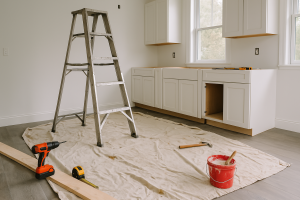Selling with or without warranty in Quebec Real Estate: What Buyers and Sellers Should Know
Buying or selling a home is a major financial transaction, and both parties want peace of mind. But sometimes, hidden problems surface after the sale closes. In Quebec, these are known as latent defects (vices cachés). Unlike other provinces or states in North America, only in Quebec are properties sold with warranty unless otherwise specified. Understanding your rights and responsibilities around latent defects can help you avoid costly disputes.
What Is a Latent Defect?
A latent defect is a hidden fault in a property that meets four legal conditions under Quebec law:
- Hidden from a prudent buyer – Not discoverable through a normal, non-invasive inspection.
- Existed at the time of sale – Even if discovered later, the buyer must prove that it had been present when the property was purchased.
- Serious in nature – It makes the home unfit for its intended use, or significant enough that the buyer would have negotiated differently.
- Timely denunciation – The buyer must notify the seller in writing within six months of discovering the defect.
If all these conditions are met, the buyer may have legal recourse.
Examples of Latent Defects in Quebec
- Water infiltration hidden in the foundation or walls
- Structural cracks covered by renovations
- Defective plumbing or electrical systems concealed behind drywall
- Roofing problems not visible during inspection
- Contamination (pyrite, asbestos, mold)
- Hidden signs of a past house fire
- Buried oil tank in the yard that has leaked into the soil
These are not cosmetic issues—they impact the safety, use, or value of the home.
Buyer’s Rights and Obligations
If you discover a hidden defect:
- Notify quickly – Send written notice (registered mail is best, or bailiff to get proof of receipt) within six months of discovery.
- Gather proof – Photographs, inspection reports, and expert evaluations strengthen your case.
- Wait before repairing – Unless there’s an emergency, avoid making repairs before the seller has a chance to inspect.
- Know the lawsuit deadline – You have up to three years from discovery to initiate legal action.
Seller’s Duties and Protections
- Disclose known issues – Sellers must reveal defects they are aware of. Concealment can lead to liability.
- Consider pre-sale inspections – Identifying issues beforehand allows you to fix or disclose them.
- Understand “as-is” clauses – These may reduce liability, but they don’t protect sellers against serious hidden faults or deliberate concealment.
If a buyer pursues you for a hidden defect, you can pursue the previous seller if you can prove the defect existed prior to your purchase. The chain cannot skip a previous owner (e.g., a buyer must sue the person who sold the property to them, not two or three prior homeowners).
When Is It Normal to Sell Without Warranty?
- Estate sales
- If the property is in very poor condition
- Elderly sellers for peace of mind in retirement
- If the seller previously purchased without warranty
- When a seller has never lived in the property (e.g., revenue or flipped properties)
That being said, more homeowners are selling without warranty, especially if it’s an older home or if they only lived in it for a short period. Keep in mind that it can dissuade buyers or slightly reduce the property’s value.
Legal Remedies for Latent Defects
When a claim succeeds, courts can order:
- A reduction in the purchase price
- Damages to cover repairs and losses
- Cancellation of the sale in severe cases
The outcome depends on the seriousness of the defect and the evidence provided.
Practical Tips
For Buyers:
- Don’t treat inspections as guarantees—ask targeted questions about structure, water, and past repairs.
- Keep detailed records from the moment of discovery.
For Sellers:
- Transparency protects you. Disclosing known problems reduces the chance of litigation.
- Fix issues before listing to strengthen buyer confidence.
Conclusion
Latent defects (vices cachés) are one of the most common sources of real estate disputes in Quebec. Buyers must act quickly and provide proof, while sellers must disclose honestly and completely.
Whether you’re buying or selling, the key is the same: timing and evidence matter most. If you discover or suspect a latent defect, consult a real estate lawyer right away.
👉 Need guidance on buying or selling property in Quebec? Contact a qualified real estate professional to protect your rights and avoid surprises.



